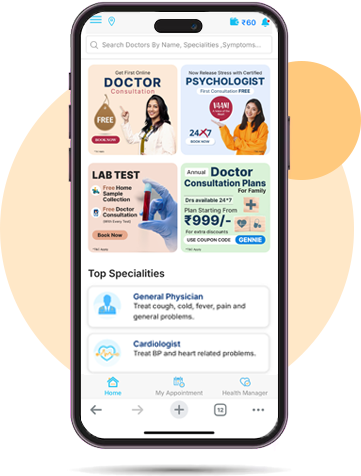Effective Strategies for Helping Children and Teens Manage Stress
May 29 , 2024

In today’s fast-paced world, children and teens face a multitude of stressors that can impact their mental and physical well-being. From academic pressures to social challenges, the need for effective stress management is crucial. This comprehensive guide, informed by leading teenage and student healthcare companies, provides practical strategies and resources to help young people navigate their stress. Whether you are searching for a student health clinic, a diagnostic center, or mental health counseling near you, this article will equip you with the knowledge to support your child’s mental health journey.
Understanding Stress in Children and Teens
Stress in children and teens can manifest in various ways, including anxiety, depression, physical symptoms, and behavioral changes. Recognizing the signs early is key to providing timely support. According to experts at Teenage Healthcare Company and Student Healthcare Companies, common stress indicators include:
- Emotional Symptoms: Irritability, mood swings, and feelings of hopelessness.
- Physical Symptoms: Headaches, stomachaches, and fatigue.
- Behavioral Changes: Withdrawal from activities, changes in eating and sleeping patterns, and academic decline.
Effective Stress Management Techniques
1. Promote Open Communication:
- Encourage your child to express their emotions and share their worries.
- Establish an environment where individuals feel secure and free from criticism to openly share their thoughts and feelings.
2. Healthy Lifestyle Choices:
- Ensure a balanced diet rich in nutrients.
- Promote regular physical activity to help reduce stress levels.
- Encourage adequate sleep, as it is essential for emotional regulation.
3. Mindfulness and Relaxation Techniques:
- Introduce practices such as deep breathing, meditation, and yoga.
- Utilize apps and online resources provided by Student Online Health and Wellness Center to guide these practices.
4. Time Management and Organization:
- Help your child develop effective study and time management skills.
- Break tasks into manageable chunks to prevent overwhelm.
5. Limit Screen Time and Social Media:
- Encourage breaks from digital devices to reduce information overload.
- Promote offline activities and hobbies that your child enjoys.
Seeking Professional Help
When stress becomes unmanageable, seeking professional help is crucial. Here’s how to find the right support:
1. Mental Health Counseling:
- Discovering Mental Health Counseling Near Me to find local resources.
- Look for licensed counselors who specialize in child and adolescent mental health.
2. Psychologists and Therapists:
- Use keywords like Psychologist Near Me for Anxiety and Depression or “Best Therapist for Depression Near Me” to locate professionals.
- Verify their credentials and experience in dealing with teen-specific issues.
3. Specialized Teen Services:
- Many Teenage Mental Health Counselling Near Me services offer tailored support for adolescents.
- These services often include individual therapy, group sessions, and family counseling.
4. Student Health Clinics and Diagnostic Centers:
- Student Health Clinics & Diagnostic Center can provide comprehensive evaluations and treatment plans.
- These centers often have multidisciplinary teams, including psychologists, psychiatrists, and pediatricians.
Utilizing Online Resources
The digital age offers numerous online platforms for mental health support:
1. Student Online Health and Wellness Centers:
- These centers offer virtual counseling, educational materials, and wellness programs.
- They provide a convenient way for students to access help from the comfort of their homes.
2. Mental Health Apps and Websites:
- Numerous apps like "Health Gennie - Care at Home " are designed to support mental health through guided meditations, mood tracking, and coping strategies.
- Websites like "Health Gennie" those of leading Student Healthcare Companies often have resource sections with valuable information.
Building a Supportive Environment
Creating a nurturing environment at home and school is essential for stress management:
1. Encouraging Positive Relationships:
- Nurture close, affirming connections with loved ones and friends.
- Encourage your child to build a network of peers who share their interests and values.
2. School Support Systems:
- Engage with teachers and school counselors to ensure they are aware of your child’s needs.
- Advocate for programs that promote mental health and well-being in schools.
3. Community Involvement:
- Participate in community activities that promote mental health awareness.
- Support local initiatives and organizations focused on youth mental health.
Long-term Strategies for Mental Well-being
1. Building Resilience:
- Teach problem-solving and coping skills.
- Encourage a growth mindset to help children view challenges as opportunities for growth.
2. Regular Mental Health Check-ups:
- Schedule routine check-ups with mental health professionals.
- Utilize services from Student Health Clinics & Diagnostic Centers for ongoing support.
3. Parental Involvement and Education:
- Educate yourself about mental health issues and effective parenting strategies.
- Stay engaged in your child’s journey and keep those channels of communication wide open.
Conclusion
Managing stress in children and teens is a multifaceted approach that involves open communication, healthy lifestyle choices, professional help, and supportive environments. By leveraging resources from top Teenage Healthcare Companies and Student Healthcare Company, parents and caregivers can provide the necessary support to help their children thrive. Remember, seeking help from mental health counseling services, psychologists, and student health clinics can make a significant difference. Prioritize your child’s mental well-being and create a foundation for a healthier, happier future.
Disclaimer:
The information on this blog is not a substitute for any professional medical diagnosis or treatment. The blog contains text, images or graphics are solely for informational purpose. Before implementing the information mentioned above, seek the advice of a professional doctor regarding any doubt or question you may have about the medical condition or treatment. Also, take the advice of a professional health care provider before making changes in your health care routine.











